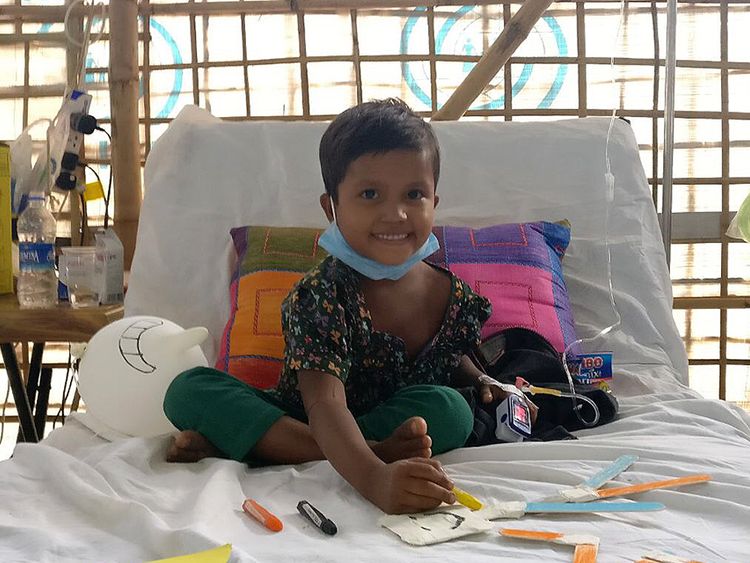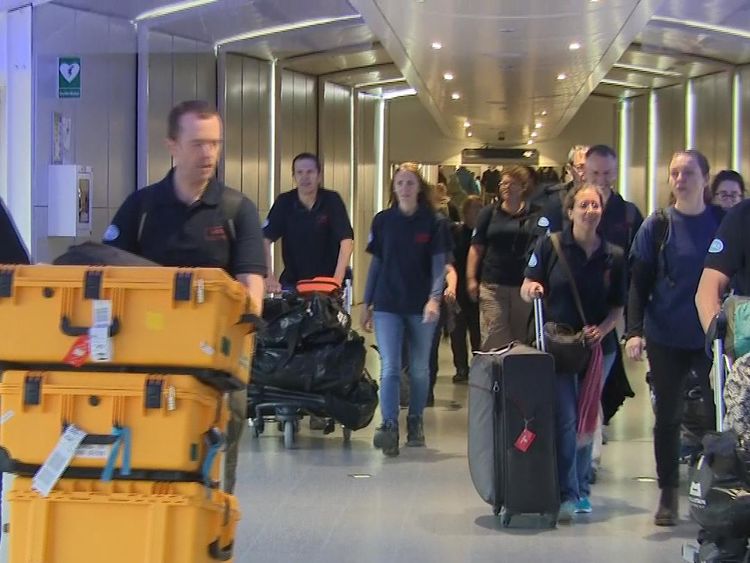Medics from the UK have this weekend returned from Bangladesh after fighting a diphtheria outbreak in the Rohingya refugee camps.
The team of 40 NHS doctors, nurses and paramedics triaged more than 3,000 people, and treated more than 500 for diphtheria, most of them children.
Before the teams arrived, the outbreak was on the verge of becoming an epidemic. Dozens of refugees had already died, and more than 150 new cases were being reported every day.
The UK's emergency medical team, which was stationed at three treatment centres, administered precautionary antibiotics and life-saving diphtheria anti-toxins to people in the camps.
By the time they left, the number of new cases presenting daily was down to single figures.
Stephen Owens is a consultant in paediatric infectious diseases who usually works in Newcastle.
He has previously worked as an emergency volunteer in Sierra Leone during the Ebola outbreak.
He said: "The conditions for the refugees are very basic, to say the least.
"But what struck me is the willingness of the Rohingya to try and make the camp a community. These are not downtrodden people who have given up. They are desperately trying to make a life for themselves."

The six-week deployment, made at the request of the World Health Organisation, was the first of its kind since the team was set up in 2016.
The work of the emergency aid teams has been supported by a UNICEF vaccination programme.
The Department for International Development (DfID) said the first round of the vaccination campaign was complete, and had ensured more than 350,000 children aged between six weeks and 15 years are protected.
About £2m of the £3.4m cost of the vaccination programme came from DfID's Bangladesh humanitarian aid budget.
International Development Secretary Penny Mordaunt has praised the "vital work" of the British team.
She said: "I have nothing but admiration and thanks for the UK medics who travelled to Cox's Bazar over the New Year to help victims of diphtheria, who without UK support would have died."

Diphtheria can cause extreme breathing difficulties and inflammation of the heart, which can lead to heart failure, damage to the nervous system and fatal paralysis.
More from Bangladesh
But despite the team's success in halting the risk of a widespread outbreak, the problems for the Rohingya in Bangladesh are far from over.
There are new refugees fleeing Myanmar and entering the camps every day. And in just a few weeks, the cyclone season will start. Something for which the Rohingya, in their city of temporary tents and shacks, are ill prepared to deal with.
[contf] [contfnew] 
Sky News
[contfnewc] [contfnewc]





